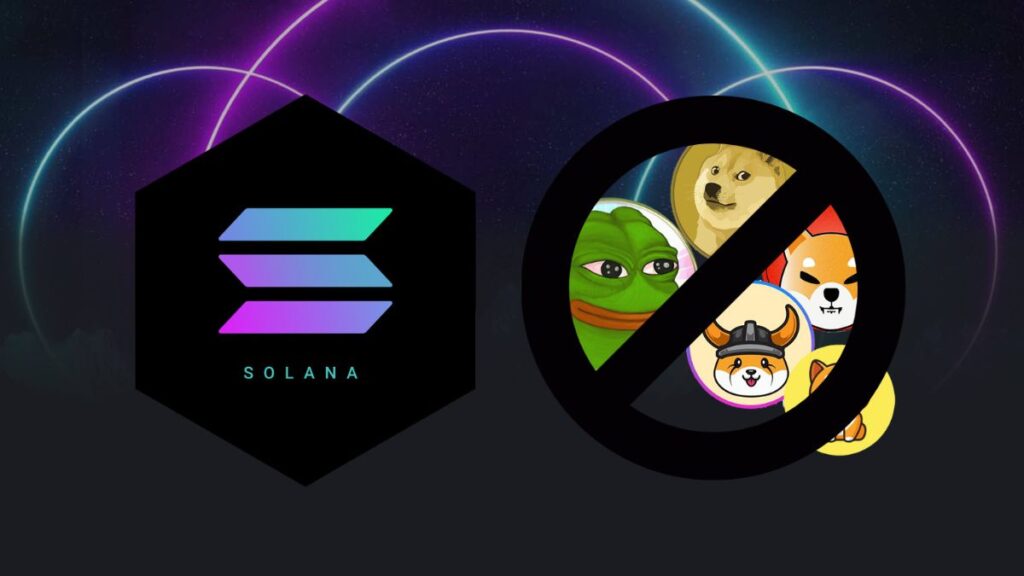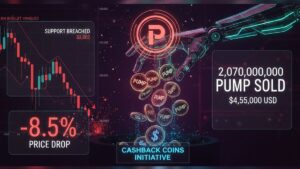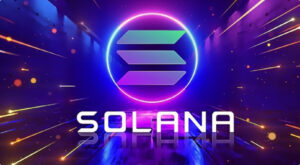TL;DR
- Solana co-founder Anatoly Yakovenko called memecoins and NFTs “digital slop” with zero intrinsic value, triggering accusations of hypocrisy.
- Memecoins generated 62% of the blockchain’s dApp revenue in June and $1.6B in H1 2025, primarily via platforms like Pump.fun and LetBonk.
- Critics argue Yakovenko’s stance mocks Solana’s user base while benefiting from the very assets he dismisses as predatory.
Solana co-founder Anatoly Yakovenko has ignited fierce backlash across the crypto community after dismissing memecoins and NFTs as “digital slop” with “no intrinsic value”, a stunning critique given that these assets generate billions in revenue for the Solana ecosystem he helped build.
I’ve said this for years. Memecoins and NFTs are digital slop and have no intrinsic value. Like a mobile game loot box. People spend $150b a year on mobile gaming.
— toly 🇺🇸 (@aeyakovenko) July 27, 2025
“Digital Slop” Declaration Sparks Firestorm
In a Sunday social media debate with Base creator Jesse Pollak, Yakovenko doubled down on his longstanding position: “Memecoins and NFTs are digital slop… their value is derived purely through market-driven price discovery.”
Pollak countered that cultural resonance and community creation imbue intrinsic worth, a fundamental philosophical clash that went viral within hours. The Solana Labs CEO’s comments struck many as hypocritical, given memecoins drove 62% of the blockchain’s dApp revenue in June alone, per blockchain analytics firm Syndica.
Loot Box Analogy Fuels Controversy

Yakovenko justified his stance by comparing Solana memecoins to predatory loot boxes in free mobile games: “Without memecoins, Solana wouldn’t be here today, but Apple’s revenues would also be negligible without loot boxes.”
Critics immediately noted the parallel highlights exploitative mechanics, drawing regulatory scrutiny in countries like Australia and Germany. Crypto commentator Karbon criticized the comparison: “Actively promoting memecoins while believing they’re worthless is distasteful.”
Community Backlash and Hypocrisy Claims
Prominent figures swiftly condemned Yakovenko’s remarks. Flaunch contributor “Caps” claimed that he was “mocking Solana’s user base,” while others pointed out Yakovenko’s posts from January 2024 that shared the same opinions, even as the blockchain experienced a rise in memecoin revenue at the same time.
The tension underscores a growing rift between blockchain pioneers and the retail traders fueling their ecosystems. Memecoins brought in $1.6 billion in revenue for Solana in the first half of 2025, mainly through sites like Pump.fun and the new player LetBonk.
Billions at Stake in Memecoin Economy
While Yakovenko dismisses their value, memecoin infrastructure dominates Solana’s economy. Launchpad Pump.fun and its DEX aggregator PumpSwap have generated massive fees, though rival LetBonk recently surpassed them in 24-hour revenue.
This commercial reality clashes with Yakovenko’s stance, especially as NFTs, which he similarly derides, continue attracting institutional collectors. The contradiction raises existential questions: Can foundational networks ethically profit from assets their creators deem worthless?










